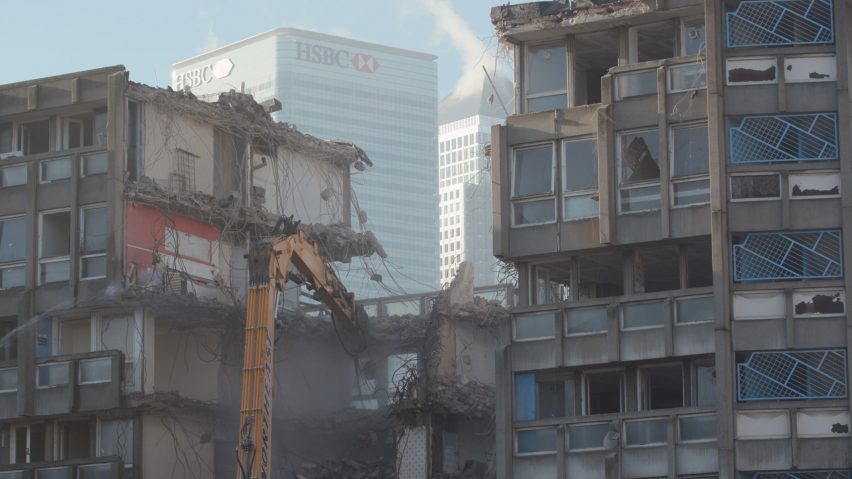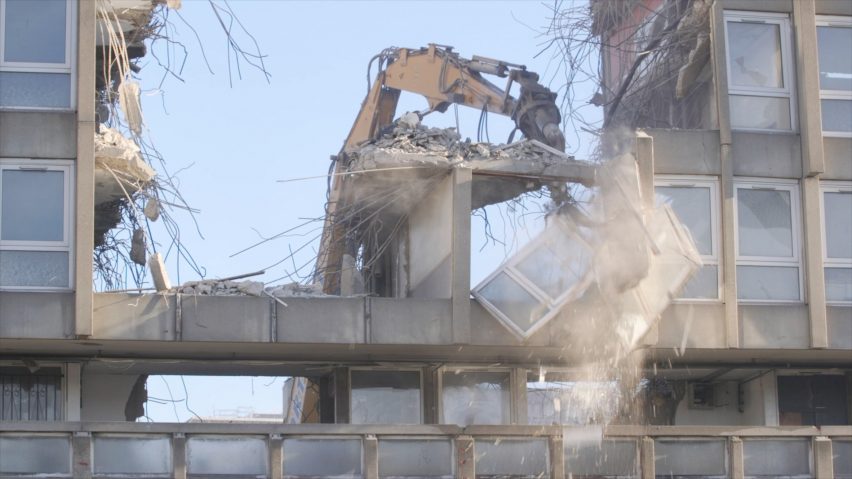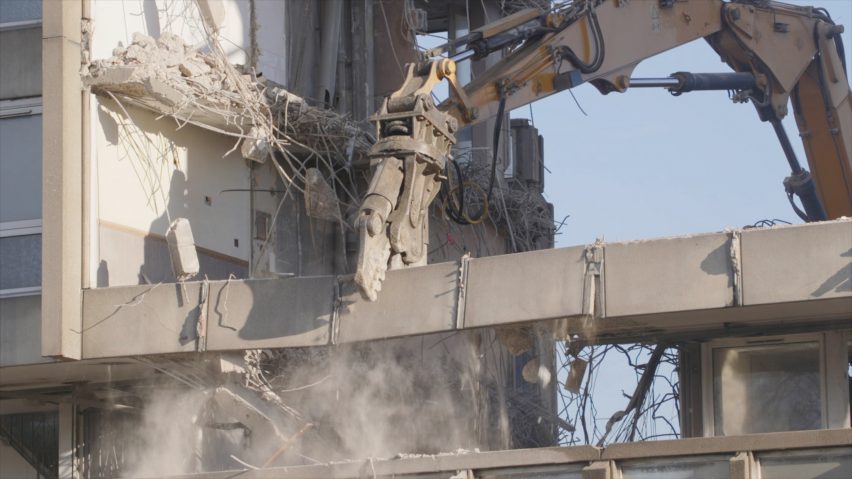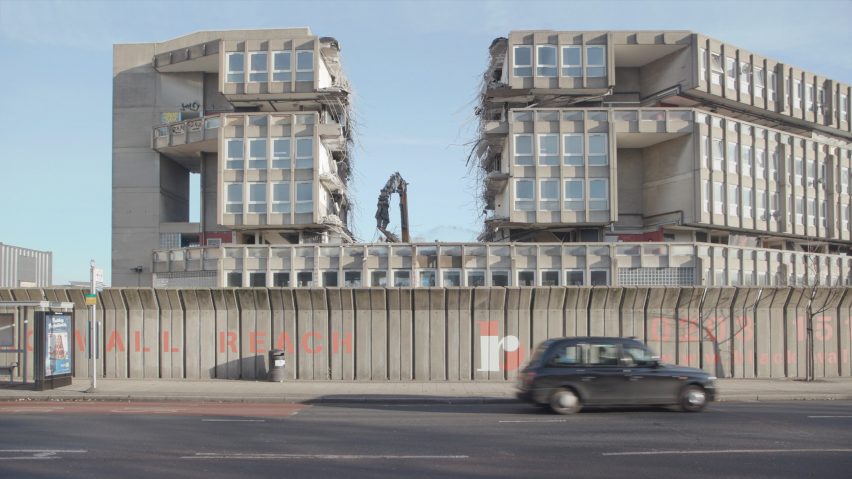Destruction of the seminal 1970s estate in east London, designed by architects Alison and Peter Smithson, first began in August 2017. But the two concrete slab blocks that make up the complex have remained largely intact until now.


It can also be seen knocking out windows and tearing through floors.

The demolition of the estate has been in the works for nearly a decade. Back in 2008, when the buildings were first revealed to be at risk, hundreds of architects – including Zaha Hadid, Toyo Ito, Richard Rogers and Robert Venturi – campaigned to grant them a heritage-listing.
Led by architecture magazine BD and supported by heritage body the Twentieth Century Society, campaigners argued that the historic structures were one of the UK's most important examples of brutalist architecture.
However, the campaign was unsuccessful and Robin Hood Gardens was granted immunity from listing, paving the way for the site to be redeveloped.

Speaking to Dezeen shortly before the demolition began, Simon Smithson – Alison and Peter Smithson's son – described the destruction of Robin Hood Gardens as an "act of vandalism". He also accused politicians of tampering with the heritage-listing system, to ensure the estate was destroyed.
Similarly, the Twentieth Century Society recently added the estate to its growing list of lost architectural treasures, and hit out at the UK's planning system for failing to protect the country's architectural heritage.

The section it has acquired measures nine metres high and 5.5 metres wide, one full section of the repeating pattern of prefabricated parts that form the buildings' facades.












Đăng nhận xét